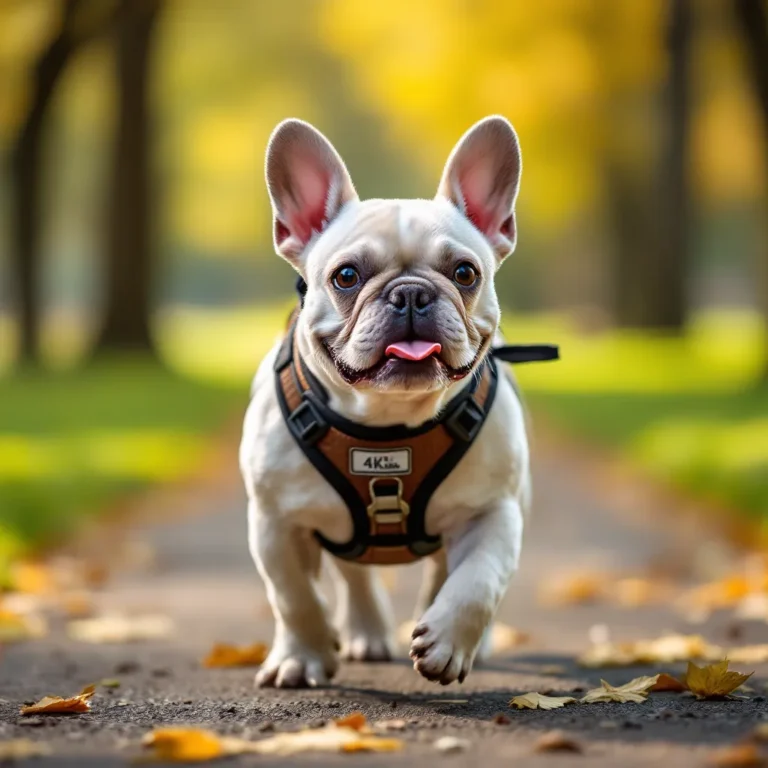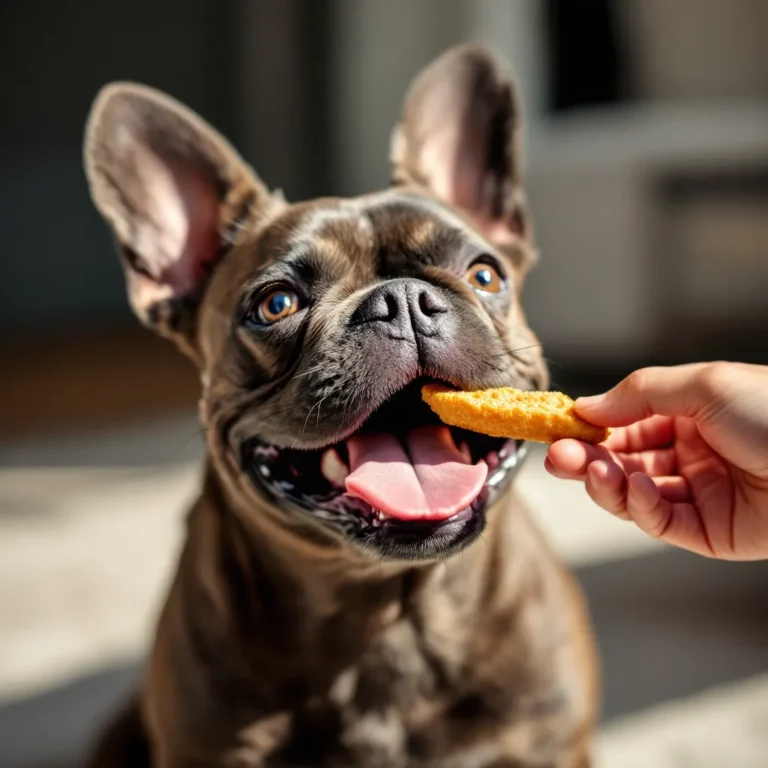Understanding your puppy’s non-verbal cues and body language is crucial to establishing effective communication and building a deeper connection. While puppies may not be able to speak our language, they communicate through a wide range of non-verbal signals, including facial expressions, body postures, and tail movements. You can gain valuable insights into your puppy’s emotions and intentions by learning to interpret these cues. This understanding allows you to respond appropriately and create a more harmonious relationship with your furry friend.
One of the key aspects of understanding your puppy’s body language is paying attention to their facial expressions. Just like humans, dogs use facial expressions to convey their emotions. For example, a relaxed and open mouth indicates a calm and content puppy, while a wrinkled forehead and tightened lips may indicate fear or discomfort. Similarly, the position and movement of the ears can provide important clues about your puppy’s mood. By observing these subtle cues, you can better understand what your puppy is trying to communicate and respond accordingly, fostering a stronger bond based on trust and mutual understanding.
Building a Routine

Establish a consistent daily routine for feeding, exercise, training, and rest, which helps create a sense of security and strengthens your bond.
Creating a routine for your puppy is essential for their overall well-being and developing a strong bond between you and your furry companion. Establishing a consistent daily schedule for feeding, exercise, training, and rest provides them with a sense of security and predictability that helps them thrive. Having a routine ensures that your puppy’s basic needs are met and allows them to understand what is expected of them and what they can expect from you.
Feeding your puppy at the same time every day helps regulate their digestion and establishes a routine they can rely on. Regular exercise keeps your puppy physically fit, stimulates their mind, and helps prevent behavioral issues. Training sessions incorporated into their daily routine provide mental stimulation, build their obedience, and reinforce the bond between you and your puppy. Lastly, allowing for adequate rest periods ensures your puppy gets the necessary sleep and downtime to recharge and stay healthy. In summary, building a routine for your puppy is a fundamental aspect of responsible pet ownership that fosters a sense of security, stability. It strengthens the bond between you and your furry friend.
Effective Communication and Training
Effective communication is crucial in building a bond with your French Bulldog puppy. Training sessions are not just about teaching commands but also about learning to understand each other. Start with basic commands like ‘sit,’ ‘stay,’ ‘come,’ and ‘down,’ using positive reinforcement techniques such as treats and praise to encourage good behavior.
Remember that French Bulldogs are a brachycephalic breed, which means they can be sensitive to heat and require shorter, more frequent training sessions. Always keep training positive and fun, as French Bulldogs respond well to an upbeat atmosphere and can become stubborn if they feel pressured or stressed.
Positive Reinforcement Training

Learn about the power of positive reinforcement training methods, including rewards and praise, to encourage good behavior and foster a strong bond.
Positive reinforcement training methods are powerful for encouraging good behavior and building a strong bond with your puppy. You can effectively communicate your expectations and reinforce desired actions by utilizing rewards and praise. This approach focuses on the positive aspects of training, creating a more enjoyable and effective learning experience for your furry friend.
When using positive reinforcement, it is essential to understand that rewards can take various forms. Treats, toys, and verbal praise effectively communicate your satisfaction with your puppy’s behavior. Using these rewards consistently and promptly strengthens the connection between their actions and the positive outcome. This encourages your puppy to associate good behavior with rewards, making it more likely for them to repeat those actions in the future. In addition, positive reinforcement training methods foster a sense of trust and cooperation, as your puppy learns that good behavior is rewarding and earns your praise and affection.
Communication and Body Language
Understanding your puppy’s non-verbal cues and body language is essential for effective communication and building a deeper connection. Dogs have a unique way of expressing themselves through various gestures, facial expressions, and body movements. You can decipher what your puppy is trying to tell you by paying attention to these cues. For example, a wagging tail accompanied by a relaxed body posture usually indicates happiness and excitement, while a tucked tail and lowered ears may signal fear or anxiety. Understanding these cues will allow you to respond appropriately and address your puppy’s needs, strengthening your communication and bond.
Socialization: A Key Component in Bond Formation
Socialization plays a significant role in any puppy’s development, and French Bulldogs are no exception. Exposing your puppy to different people, dogs, environments, and situations helps them become more adaptable and confident. A well-socialized French Bulldog puppy is more likely to form a strong bond with you because they learn to trust your guidance in unfamiliar scenarios.
Arrange playdates with other vaccinated dogs, visit pet-friendly locations, and allow your puppy to experience various sights and sounds. Always monitor these interactions closely to ensure they remain positive experiences for your puppy, helping to reinforce the bond through security and enjoyment.
The Role of Routine in Your Puppy’s Life

Establishing a routine is another way to deepen the bond with your French Bulldog puppy. Like children, puppies thrive on predictability. A consistent schedule for meals, walks, playtime, and bedtime helps your puppy feel secure and understand what’s expected of them.
Additionally, consistency in response to their behavior—whether rewarding good conduct or correcting undesirable actions—helps reinforce your role as the leader. A clear structure makes it easier for your puppy to follow your lead, solidifying your bond.
Health and Nutrition: Foundations of a Strong Bond
Your French Bulldog puppy’s health is closely tied to the strength of your bond. A healthy puppy is a happy puppy, and it is crucial to ensure proper nutrition, regular veterinary check-ups, and appropriate vaccinations. Pay attention to your French Bulldog’s specific health needs, given their unique breed characteristics.
A diet tailored to their growth requirements, coupled with proactive healthcare management, signals to your puppy that they are cared for and valued. This care contributes significantly to building trust and affection between you both.
How can I understand my puppy’s non-verbal cues and body language?
Pay attention to their tail wagging, ear position, and overall body posture to accurately interpret their emotions and intentions.
Why is it important to establish a routine for my puppy?
A consistent daily routine provides a sense of security, helps with behavior training, and strengthens the bond between you and your puppy.
What is positive reinforcement training?
Positive reinforcement training involves rewarding good behavior with treats or praise, which motivates your puppy to repeat those behaviors and strengthens your bond.
How can I effectively use positive reinforcement training?
Use treats or praise immediately after your puppy displays the desired behavior to reinforce and encourage it. Consistency and timing are key.
How long does it take to build a strong bond with my puppy?
Building a strong bond with your puppy takes time and consistency. It varies from dog to dog, but with patience and positive reinforcement, you can expect to see progress within a few weeks.
Final Thoughts on Bonding with Your French Bulldog Puppy

Building a bond with your French Bulldog puppy takes time, patience, and dedication. It’s about creating a loving environment where your puppy can grow into a well-behaved and affectionate companion. Remember that each moment spent together is an opportunity to strengthen this special relationship.
You lay down the pillars of a lifelong bond with your French Bulldog by focusing on trust, communication, socialization, routine, and health. With these foundations in place, you can look forward to many joyful years with your well-loved companion by your side.
Hi, I’m Alex! At FrenchyFab.com, I share my expertise and love for French Bulldogs. Dive in for top-notch grooming, nutrition, and health care tips to keep your Frenchie thriving.



